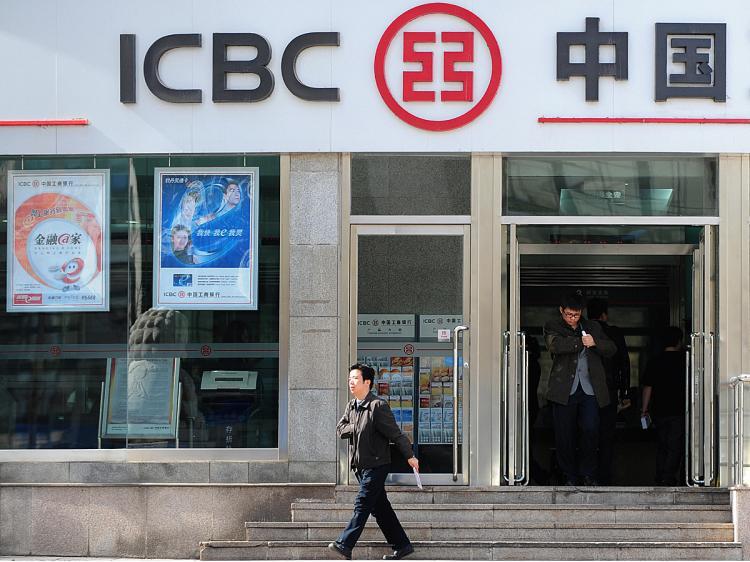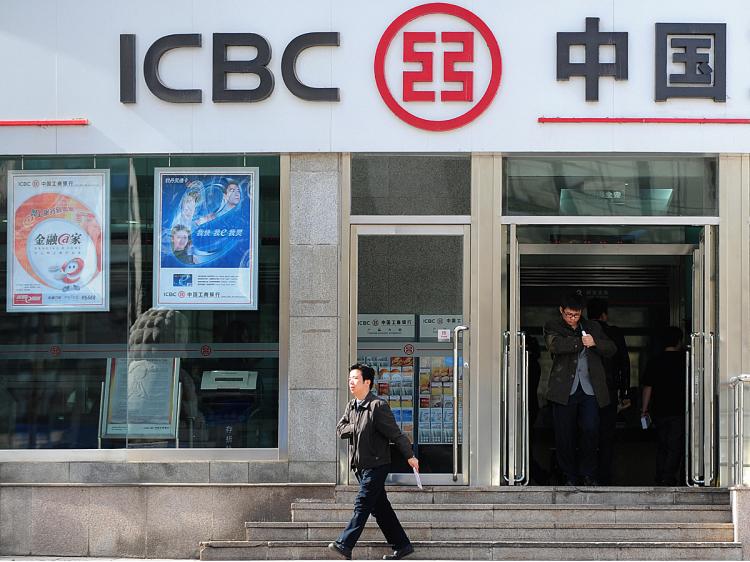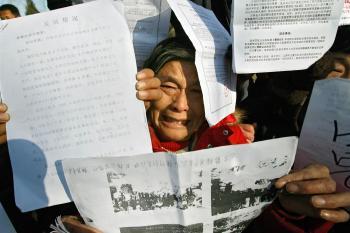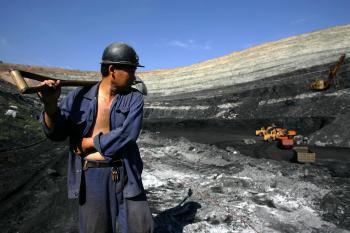Part I of II
Chinese state-owned corporations are posting record profits, but the figures are not a cause for celebration by ordinary Chinese.
On April 19, Li Rongrong, the chairman of China’s State-Owned Assets Supervision and Administration Commission (SASAC) revealed that China’s 140-odd state-owned corporations had a joint profit of 665.3 billion RMB (US$97.4 billion) in 2008.
That includes profits of over US$16 billion by each of China’s top three corporations: China National Petroleum Corporation (CNPC), China Mobile and Industrial, and Commercial Bank of China (ICBC). Mr. Li revealed a total profit from these corporations of US$9.12 billion in March alone, an 85.7 percent increase on the previous month. To put these numbers in context, Chinese state media reported that the joint profit of U.S. fortune 500 companies was only US$98.9 billion in 2008, a record drop of 85 percent.
But savvy Chinese observers were far from impressed by the news, which was condemned in online forums by thousands of Chinese Internet users. The gist of the criticism was that the profits have nothing to do with innovative technology or optimized management, but rather to the state giving each corporation a monopoly and favorable regulations.
Take for example China’s main oil company, CNPC. The Chinese regime gave it almost all of China’s on-shore oil reserves more or less for free, and then decided how much the people would pay by dictating the nationwide gasoline price at the pump. When global oil prices rose, the price of gasoline was closely adjusted to follow the increase, even though only about 40 percent of CNPC’s oil was imported from overseas. When global oil prices reached over US$120 a barrel, the regime even directly subsidized some of CNPC’s refineries with billions of dollars, while CNPC as a whole was still the most profitable company in Asia.
But when the global oil prices went into a free fall from US$140 a barrel to the current US$40–US$50 a barrel, the gasoline price in China was adjusted downward at a much slower pace. Drivers in China now pay nearly 50 percent more than those in the United States. How CNPC could not be highly profitable, enjoying all of these benefits, is hard to imagine.
State-owned communication companies like China Mobile are just as greedy. U.S. consumers have saved a lot of money by using the technology voice-over-IP, but the Chinese regime has officially banned private companies from using the same technology to bring down long-distance bills in China. People in China pay about three times more to call friends and relatives in the United States than U.S.-based relatives pay to call them, and the long-distance rate within China costs more than the rate from the United States to China.
A friend of mine here in the United States makes a three-way teleconference every weekend with two relatives in two different cities in China, and then leaves the teleconference to allow those two to chat. That’s because it’s cheaper to make two U.S.-to-China international calls than making one long distance call within China. Given the size of phone bills in China, one can understand the anger felt by Chinese consumers on learning that China Mobile has become the most profitable communications company in the world.
As for the huge profits made by Industrial and Commercial Bank of China (ICBC), they may be very short-lived—that there is a real estate bubble in China that could burst at any time is no secret. In the middle of 2007 before the real estate market crashed, U.S. banks were also posting huge profits by gambling that the U.S. housing market would go up forever. But Citigroup’s 2006 profit of US$21.5 billion didn’t prevent it from losing US$27.7 billion in 2008, and Wall Street now admits that the greedy and careless lending practices that created the huge pre-2007 profits led directly to the huge 2008 losses, as well as the current financial crisis.
China’s real estate market could undo the Chinese banks’ profits just as quickly. The Chinese regime is well aware of this fact, and that’s why they have tightly controlled the release of housing market statistics, while at the same time filling the state media with articles that say the market will keep rising and people should buy at the current high price.
The accounting system of Chinese banks is also opaque to the outside world. No one really understands what processes were behind the huge amounts of bad assets that mysteriously disappeared from banks’ balance sheets in 2004.
Nobody admires drug cartels that maintain massive profits by killing off their competitors, and neither do Chinese people admire China’s state-owned corporations for flourishing in the haven created for them by the Chinese regime. US$97.4 billion is a formidable figure. Some on the Chinese Internet have questioned where it ultimately went, and who benefited from it. They have dreamed that the Communist Party might put it into China’s poorly-funded social welfare system, especially this year, after the regime spent the last seven years preparing the most expensive Olympic Games in history.
Unfortunately, nobody really knows where the money went, but it looks to have been allocated to other more important and secretive plans. But this is not a big disappointment for ordinary Chinese people, whose hard work is the source of these profits, as their expectations of the Party were already very low.
The CCP never releases economic figures without an agenda. Why the CCP chose to release these data at this moment, and what agenda is being advanced, will be the subjects of Part II.
Part II will be published in one week.
Chinese Corporations’ Profits Rise, Along With Discontent
Chinese state-owned corporations are posting record profits, but ordinary people don’t get to share the wealth.
|Updated:





